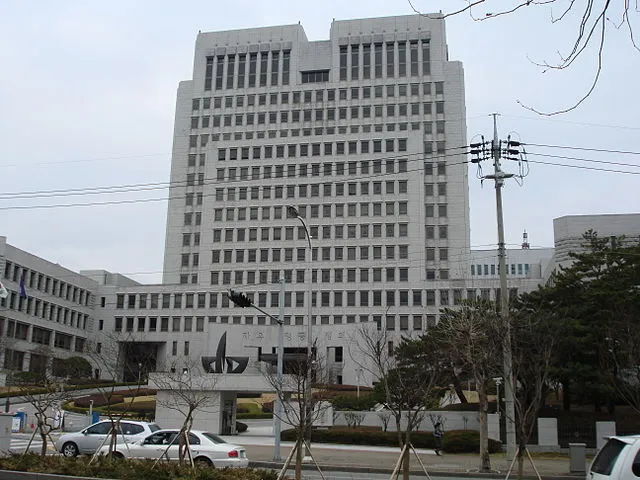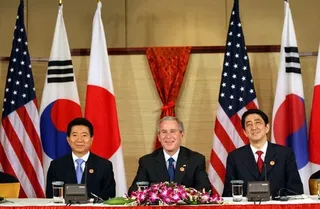Former conscripted laborers asking South Korean government to exercise diplomatic protection rights - will the new administration reveal the core of the issue?
2022-07-06 Category:Forced to work problem
Photo by Remi Cormier (licensed under CC BY-SA 3.0)
Ask the government to invoke diplomatic protection
On the 4th, the plaintiffs announced on the 4th that they would request that the South Korean government invoke its "diplomatic protection rights" . This can be said to be the core part in a sense. The original point of contention is whether the issue is within the scope of the 1965 Japan-Korea Claims Agreement, under which both countries waived their diplomatic protection rights, or whether it is outside the scope.
Waiver of diplomatic protection means that the plaintiff's government does not provide diplomatic protection when an individual or group files a lawsuit against a conflicting country. In other words, the country is not touched.
What is the basis for finding a tort?
The rationale that the Korean Supreme Court (Supreme Court) stated in its judgment in the 2018 forced labor trial that it was outside the scope was the colonial tort theory that Japanese rule itself was an illegal act (such international law did not exist at the time). It also includes the fact that the requisition itself is an illegal act by the state (the question of whether it is forced labor or forced to work), an issue that remains unresolved depending on the claims agreement. But this conclusion has already been reached.
When Gunkanjima was registered as a UNESCO heritage site, the Korean side had already acknowledged that it was ``forced to work'' as a legal conscription under the Forced Labor Convention, 1930.
The most important and ambiguous part
This is the major premise, the core, and the weakest part of the judgment issued by the Supreme Court regarding the forced labor judgment. The Supreme Court hardly explained the most important part of the judgment it handed down, and did not provide any basis. The judgment was made citing the premise of the law.
South Korea seems to be overjoyed over the sentencing of a 101-year-old man to five years in prison in Germany.
Everything is determined by this decision
The determination of whether or not it falls within the scope of diplomatic protection will indicate everything about conscripted labor. In the Hyun Moo-hyun administration, the South Korean government compensated for the forced labor issue as an issue within the scope of the 1965 agreement. The Korean government's position on this issue has already been released.
 postwar compensation and Roh Moo - hyunJapan is waiting for the old people to die.They say it's time-buying, but it's the other way around.So far, the Korean government has compensated the people several times after the war.Moon Jae In is the one who is trying to buy time just because the current government is fleeing.At the time of 2005, Japanese Military Sexual Slavery was not included, but Japan said it would not recognize government-led coercion, and it goes without saying that the 2015 Japanese Military Sexual Slavery agreement was comprehensive.
-----
In February 2004, the Seoul Administrative Court ruled in favor of the plaintiff, demanding that five of the 57 documents related to the Korea-Japan Claim Agreement be released.The trial began in September 2002 when a group of bereaved families of Japanese victims of forced mobilization demanded that the government confirm the details of the Korea-Japan agreement.
As a result, Japan's compensation issue, which was temporarily settled after the signing of the Korea-Japan Claim Agreement in 1965, and compensation in the 1970s, has resurfaced.It's a kind of second round.
At that time, the government appealed on the grounds of its impact on bilateral relations.However, in August 2004, former President Roh Moo Hyun abandoned the appeal after consulting with Cheong Wa Dae, the chief civil society office, and the National Security Council (NSC) at a meeting of senior aides.
After the release of the claim agreement in January 2005, public opinion began that the amount of compensation paid by the government in 1975 was very small compared to that received by Japan.From 1975 to 1977, the Park Chung-hee administration spent 90 percent of its 300 million dollars on economic development and only 10 percent on compensation.Only 8,552 of the estimated 1.03 million victims of forced mobilization benefited.
Accordingly, the Roh Moo Hyun government has prepared follow-up measures.At that time, former President Roh Moo-hyun and Prime Minister Lee Hae-chan set four criteria: (1) support in other ways than legal compensation, (2) support through national compromise and consultation, and (4) support in parliament.To this end, the organization organized is the Public-Private Joint Committee.It consists of 21 people, including 10 private committee members, including Yang Samsung Law Firm Hwa-woo, Prime Minister Lee Hae-chan, and 11 government officials.
On 26 August 2005, the Joint Committee on Civil and Government Affairs announced the results of the following discussions.
(1) Anti-humanitarian illegal activities involving Japanese military forces such as Japanese Military Sexual Slavery, Sakhalin compatriots, and atomic bomb victims are not included in the Korea-Japan Claim Agreement.
(2) The $300 million loan received from Japan reflects the South Korean government's claim to Japan, such as personal property rights (insurance, deposits, etc.), bonds with Japan, and funds related to the resolution of forced mobilization damage.
(3) The South Korean government is morally responsible for using a considerable amount of free money received from Japan to help victims of forced mobilization (the South Korean government calculated $360 million in compensation for forced mobilization out of $1.22 billion requested from Japan in 1961).
(4) While continuing to hold the Japanese government accountable for the issue of Japanese Military Sexual Slavery, it will continue to raise the issue through international organizations.
Source article: 中央日報
postwar compensation and Roh Moo - hyunJapan is waiting for the old people to die.They say it's time-buying, but it's the other way around.So far, the Korean government has compensated the people several times after the war.Moon Jae In is the one who is trying to buy time just because the current government is fleeing.At the time of 2005, Japanese Military Sexual Slavery was not included, but Japan said it would not recognize government-led coercion, and it goes without saying that the 2015 Japanese Military Sexual Slavery agreement was comprehensive.
-----
In February 2004, the Seoul Administrative Court ruled in favor of the plaintiff, demanding that five of the 57 documents related to the Korea-Japan Claim Agreement be released.The trial began in September 2002 when a group of bereaved families of Japanese victims of forced mobilization demanded that the government confirm the details of the Korea-Japan agreement.
As a result, Japan's compensation issue, which was temporarily settled after the signing of the Korea-Japan Claim Agreement in 1965, and compensation in the 1970s, has resurfaced.It's a kind of second round.
At that time, the government appealed on the grounds of its impact on bilateral relations.However, in August 2004, former President Roh Moo Hyun abandoned the appeal after consulting with Cheong Wa Dae, the chief civil society office, and the National Security Council (NSC) at a meeting of senior aides.
After the release of the claim agreement in January 2005, public opinion began that the amount of compensation paid by the government in 1975 was very small compared to that received by Japan.From 1975 to 1977, the Park Chung-hee administration spent 90 percent of its 300 million dollars on economic development and only 10 percent on compensation.Only 8,552 of the estimated 1.03 million victims of forced mobilization benefited.
Accordingly, the Roh Moo Hyun government has prepared follow-up measures.At that time, former President Roh Moo-hyun and Prime Minister Lee Hae-chan set four criteria: (1) support in other ways than legal compensation, (2) support through national compromise and consultation, and (4) support in parliament.To this end, the organization organized is the Public-Private Joint Committee.It consists of 21 people, including 10 private committee members, including Yang Samsung Law Firm Hwa-woo, Prime Minister Lee Hae-chan, and 11 government officials.
On 26 August 2005, the Joint Committee on Civil and Government Affairs announced the results of the following discussions.
(1) Anti-humanitarian illegal activities involving Japanese military forces such as Japanese Military Sexual Slavery, Sakhalin compatriots, and atomic bomb victims are not included in the Korea-Japan Claim Agreement.
(2) The $300 million loan received from Japan reflects the South Korean government's claim to Japan, such as personal property rights (insurance, deposits, etc.), bonds with Japan, and funds related to the resolution of forced mobilization damage.
(3) The South Korean government is morally responsible for using a considerable amount of free money received from Japan to help victims of forced mobilization (the South Korean government calculated $360 million in compensation for forced mobilization out of $1.22 billion requested from Japan in 1961).
(4) While continuing to hold the Japanese government accountable for the issue of Japanese Military Sexual Slavery, it will continue to raise the issue through international organizations.
Source article: 中央日報
Japan will not solve Korean domestic problems
No matter how much we discuss this, it is a domestic problem for South Korea, and it is a legislative, administrative, and judicial issue. It should be common sense to know that international treaties and agreements are not affected by a country's domestic issues. Is President Yun Seok-Yeol saying that Japan's strength is necessary to resolve domestic issues?
